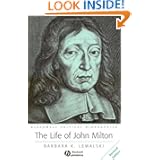Social Proof thus far:
Email to Professor Amy Insalaco, my current classical traditions professor. No response yet, but I will talk to her in class.
Hello Sister Insalaco!
I have a question that if you have a moment in the next little bit I would love to hear your thoughts on.
I am working on a research paper that has to do with Renaissance Christians and their use of classical allusions (classical pagan tradition in general). Specifically, how those methods/writings are reconciled by said Christian writers within Christian tradition. John Milton’s works are what I am working within but I am drawing on background opinions and writings from others near and around his time (right now esp. Erasmus and St. Augustine). I recall you mentioning some ideas similar to this when we were discussing Dante and the allowance of “other,” non-Christian material. I was wondering if you had any further thoughts, suggestions, or references as someone well-versed on the topic. In essence the question I am working around is--How did Christian writers accommodate or allow for the teaching, copia, and use of classical literature amongst people that saw the Bible as complete authority?
Thank you for your time!
Elise Marchant (Godfrey)
Email to Dr. Barbara Lewalski, emeritus English professor at Harvard University. She published a book in 2008 called “The Life of John Milton: A Critical Biography” which I’ve been picking my way through. No response yet either but I’m still hopeful.
Dr. Lewalski,
I am an English major studying at Brigham Young University. Currently, I am working on a paper discussing John Milton’s use of classical allusions and focusing largely on how the use of pagan tradition was accommodated within Christian renaissance academia and writing. I’m specifically exploring the paradox Milton appears to create in Christ’s denunciation of classical pagan literature in response to Satan’s argument in Book IV of "Paradise Regained."
My claim is that this is not actually a paradox but a detailed reading will reveal it is a call to use pagan learning/tradition in the ways that Erasmus, St. Augustine, and Dante purported—as means and patterns to further Christian teaching and truth. Christ demonstrates this as he encourages it by turning Satan’s arguments on their heads.
I’ve been reading chapters from your book “The Life of John Milton: A Critical Biography,” which has been quite helpful in laying a background for Milton within my context. You mention in a number of places Milton’s "characteristic use of classical motifs and myths to carry Christian meaning,” a sentiment I readily agree is evident. It is the very nature of that idea that sparked my paper in the first place. In your professional opinion, what was Milton’s mindset in using classical pagan means to reach his end of “justifying the ways of God to men”? Was he adhering to the notion that classical literature should be used to teach and divine truth? Or was there a different agenda? You also mention that Milton was unhappy and in many instances criticized his education, one very much based in classical learning. How do you think that reconciles itself with Milton’s writing tendencies?
If you have a moment I’d love to hear your thoughts or any references you would suggest.
Thank you for your time!
Best wishes,
Elise Marchant (Godfrey)
Results: None yet. But if I don’t hear back from either of these two by tomorrow I’m going to send out feelers to Dr. Kerr and another professor I know.

You might consider testing out your ideas in less formal settings as well. I contacted a writer from a Yahoo article, and he ended up providing me with a lot of really useful resources for my topic. Have you heard back from Dr. Kerr at all yet?
ReplyDelete